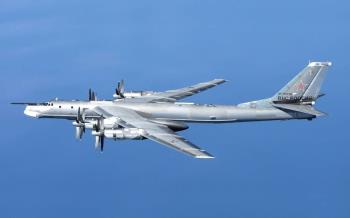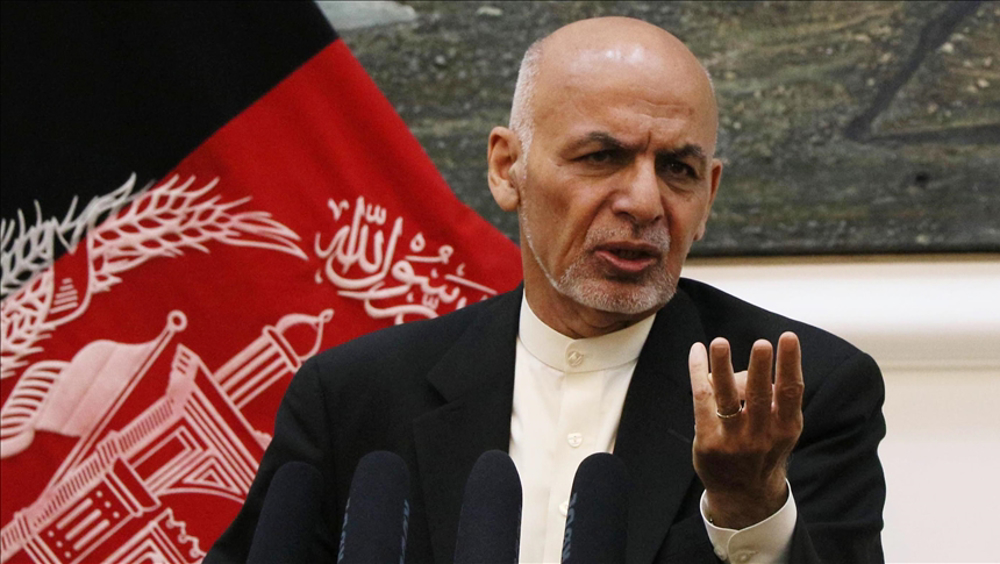Alwaght- Ashraf Ghani, former Afghan president, has accepted “shared” responsibility for the fall of the country into Taliban hands, blaming himself for trusting the US which negotiated a deal with the militant group that brought about his ouster.
“One has to take responsibility for trusting a partner that then trampled our sovereignty and imposed the release of 5,000 [Taliban] prisoners, among them, the largest drug dealers in history in the region,” Ghani said in an interview with state-financed US broadcaster, Public Broadcasting Service (PBS).
“Responsibility is shared, and where I take responsibility for is to have trusted our key partner that signed our withdrawal agreement -- and for one full year -- its (US) forces were not attacked by the Taliban, but our forces paid the highest price,” he further emphasized, referring to Washington’s deal with the militant group not to attack US and allied occupation forces across Afghanistan while leaving them free to wage terror attacks against Afghan government forces and civilians.
The deal – known as the Doha agreement signed between the administration of former US president Donald Trump and the Taliban – did not involve the official Afghan government, provided a date for total withdrawal of American forces from Afghanistan and forced the Washington-sponsored Ghani administration to release 5,000 Taliban prisoners.
Ghani further slammed the US-Taliban deal, insisting that Washington’s “assumptions regarding the Taliban were highly flawed” and “based on wishful thinking.” He also promised that the preparation and implementation of the pact “will go down in the history as one of the worst agreements ever concluded.”
“The US propped up the Taliban… The Trump administration — without the Trump administration's role, the Taliban would not be here today,” the ex-president of Afghanistan then underlined.
Ghani went on to blast Washington for establishing what he described as “false assurance systems,” saying, “We were assured that a cease-fire would take place and political negotiations regarding the future government will be an indispensable part of the agreement, which they were not.”
He also blamed successive US administrations and their agents and contractors in Afghanistan for the widespread and growing corruption across his impoverished Asian nation.
“Where did corruption start from?,” he asked. “It started with a — with buying of the warlords by the Bush administration. The scale of corruption in Afghanistan is a confluence between your new barons, which represent Beltway contractors, and military industrial contractors, and Afghan new and old warlords.”
“My agenda was to deal with this corruption and to contain it,” he also claimed, describing it as “a cancer.”
“But, simultaneously, you need to see our sacrifices. We were losing between 200 and 400 soldiers and officers a day,” Ghani noted. “A time comes when even steel has a snapping point, and that's the point it came, because the cities and the provinces where a lot of fighting took place could not receive sustained support.”
The former Afghan leader further accused Washington and the US-led NATO military alliance of not sticking to their pledged withdrawal date of 2024, suggesting that their hasty pullout contributed to his government’s inability to better plan for security measures.
“We need to understand, 20 years of engagement had been building systems based on the premises of 2024 departure,” he pointed out. “There was an agreed date with NATO and with the international community. It was 2024.”
“Key was predictability,” Ghani insisted. “Had the US decided to tell us in the — on January 2019 that it will withdraw by 2021, we would have been able to plan.”
The US invaded Afghanistan in October 2001 following the September 11, 2001 terrorist attacks in the United States, despite the fact that no Afghan national was involved in the attacks. Hundreds of thousands of Afghans have been killed as a result of the US war of aggression on the country.
American forces had occupied the country for about two decades under the pretext of the so-called “War on terror.” But as the US forces left Afghanistan, the Taliban stormed into the capital Kabul in August last year, weakened by continued foreign occupation.
The Taliban took over the capital on August 8, 2021, and declared that the war in Afghanistan was over. The militants entered the presidential palace after Ghani fled the country.
The US was forced to shut down its huge embassy in Kabul and evacuate diplomats and staff by helicopters.



























